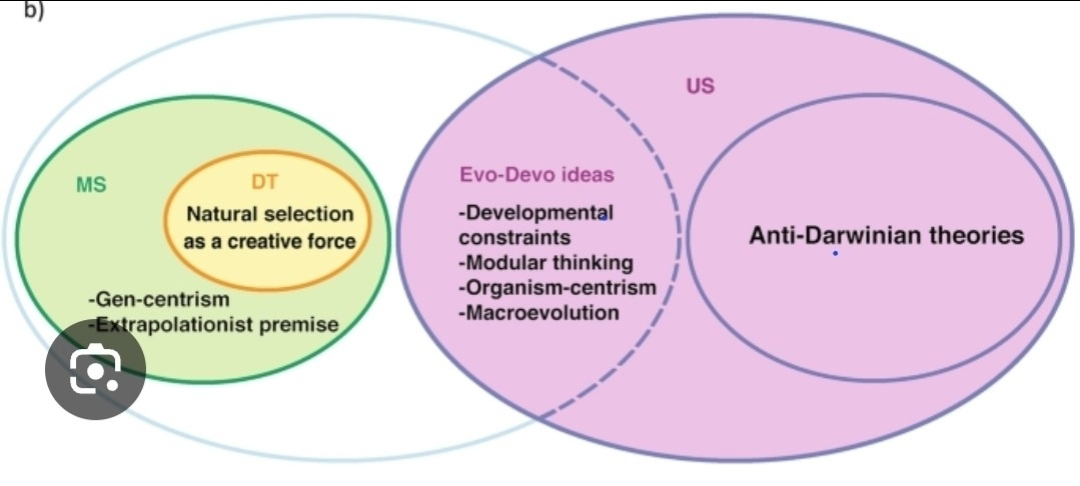A Paradigm Shift in Evolution: Deconstructing the Modern Synthesis for a More Inclusive Future
A recent, strongly-worded critique of mainstream evolutionary theory has emerged from the pages of Progress in Biophysics and Molecular Biology. In his 2024 paper, "Cooperative genes in smart systems: Toward an inclusive new synthesis in evolution," systems scientist Peter A. Corning argues for the complete abandonment of the long-standing "Modern Synthesis" and its popular counterpart, the "Selfish Gene" concept. Corning contends that these frameworks are no longer tenable in the face of mounting evidence and proposes a new, more inclusive paradigm that re-centers the agency of living organisms and the power of cooperation in shaping the grand narrative of life.
For over half a century, the Modern Synthesis has provided the dominant framework for understanding evolution, wedding Darwinian natural selection with Mendelian genetics. This model, in essence, views evolution as a process driven primarily by the random mutation of genes, with natural selection acting as the principal force of change, favoring traits that enhance reproductive success. This gene-centric view was further popularized and arguably taken to its extreme by Richard Dawkins' "Selfish Gene" concept, which posits that organisms are merely "survival machines" for their constituent genes.
However, Corning, along with a growing chorus of other scientists, argues that this perspective is fundamentally incomplete. He asserts that the relentless focus on genes as the sole drivers of innovation has blinkered our understanding of the vast and intricate tapestry of evolutionary processes. Decades of research in fields like molecular genetics, developmental biology, epigenetics, and genomics have revealed a far more dynamic and complex picture than the Modern Synthesis allows.
In its place, Corning champions an "inclusive new synthesis," a multi-faceted and open-ended framework that acknowledges the myriad factors at play in evolution. This new perspective moves beyond a purely gene-centric view to recognize living systems themselves as purposeful agents in their own evolutionary journey. He employs the term "teleonomic" to describe this inherent, evolved purposiveness of organisms. This is not to suggest a pre-determined or mystical directionality to evolution, but rather to acknowledge that organisms are not passive puppets of their genes; they are active participants that exhibit goal-directed behaviors to survive, adapt, and reproduce.
At the heart of Corning's proposed synthesis lies the concept of "synergy." He argues that cooperative effects, at all levels of biological organization, are a primary and often overlooked engine of evolutionary change. From the symbiotic relationships that gave rise to the eukaryotic cell to the complex social structures of animals and humans, synergy—where the whole is greater than the sum of its parts—has been a key driver of innovation and complexity. "Cooperative genes" operating within "smart systems"—organisms capable of processing information and responding to their environment in a non-random way—are, in this view, far more representative of the evolutionary process than the notion of ruthlessly competing "selfish" genes.
Corning's critique extends to what he sees as the theoretical "compromises" that have attempted to patch the holes in the Modern Synthesis, such as the "Extended Synthesis." He argues that these attempts do not go far enough, as they still retain the foundational gene-centric framework. For Corning, a mere extension is insufficient; a complete paradigm shift is necessary.
This call for a new synthesis is a challenge to Darwinian natural selection with a radical reimagining of its scope and the forces that guide it. In Corning's view, the creativity of evolution does not reside solely in random genetic mutations. Instead, it is found in the interplay between organisms and their environments, in the innovative solutions that arise from cooperative interactions, and in the purposeful actions of living beings as they navigate the challenges of existence.
The implications of this "inclusive new synthesis" are profound. It reframes our understanding of causality in evolution, giving a more prominent role to the organism as an active agent. It emphasizes the ubiquity and creative power of cooperation, challenging the long-held narrative of nature as a ceaseless and exclusively competitive struggle. And it opens up new avenues of research, encouraging scientists to explore the diverse and often subtle ways in which organisms, through their behaviors and interactions, shape their own evolutionary destinies.
In essence, Peter A. Corning's work is a call to move beyond the reductionist limitations of 20th-century evolutionary theory. It is a plea for a more holistic and dynamic understanding of life, one that recognizes the intricate dance of cooperation, purpose, and synergy that has driven the remarkable story of evolution on Earth. The debate is far from settled, but Corning's forceful argument for an "inclusive new synthesis" is a significant contribution to the ongoing and vital conversation about the very nature of life itself.




Comments
Post a Comment